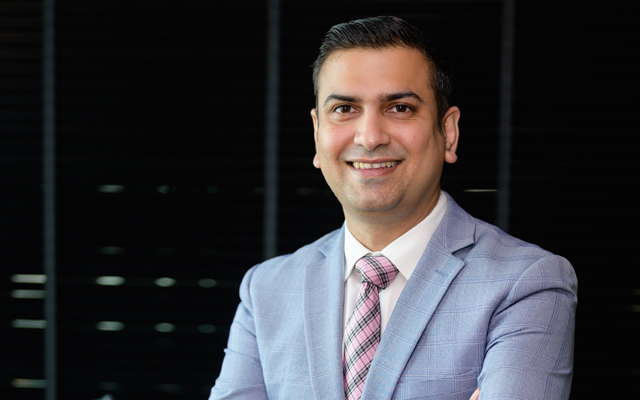Ravi Saraogi, co-founder and president of Uniphore APAC, discusses how travel providers can optimise technology to ensure maximum efficiency across all touchpoints, all to better serve travellers as international travel ramps up across the globe
International travel has just about started to pick up pace after coming to a near standstill. Having been at home for the longest time, many are looking forward to a travel vacation as countries across the Asia Pacific resume some semblance of international travel.
In Singapore, the Government has taken steps to open borders progressively, streamlining and simplifying border measures and testing regimes for travellers. The recent renewal of a seven-year deal to host the Formula One race is a strong indication of the Government’s commitment to renew the tourism sector and inspire travel to Singapore.

Vacation travel will drive much of the recovery in the near term, as seen by the encouraging growth of Singapore’s international visitor arrivals and tourism receipts which reached 330,000 and an estimated S$1.9 billion respectively in 2021.
To continue capturing the travel demand, key players in the travel and tourism industry are addressing the importance of instilling confidence in travellers to allow them to plan for trips in the post-pandemic world with ease.
Rising travel expectations to manage Covid-19 risks
The changing needs and preferences of travellers that have emerged in recent months have raised the bar even further for the travel industry to appeal to those who wish to travel.
Modern-day travellers prioritise safety above all. They are looking at ways to minimise social interactions through contactless services, allowing flexibility in travel arrangements, and personalising the experience before, during, and after travel.
In a recent survey by TripAdvisor, more than 70 per cent of respondents in APAC countries such as Australia, Japan and Singapore expect service providers and destinations to take adequate health and safety precautions and state this as their primary deciding factor.
Travellers are bearing even more expectations before ticking off the travel checklist. They look to engaging with travel advisors who best know the environment to problem-solve any emergency issue and help navigate the rules of travelling that can be complicated and stressful. Today travellers need to be assured that everything will fall into place such that they will face minimal disruptions while travelling.
Digitalising existing travelling processes for maximum efficiency
This is where technology plays a pivotal role to create seamless touchpoints that will make travel safer and more efficient.
The travel experience has already been largely digitalised with the use of navigation tools such as Google Maps, virtual boarding passes, mobile travel wallets amongst others. But post-pandemic travel might play up these digital experiences in every aspect possible – from digital vaccine passports, QR-coded menus, crowd-control robots to contact-tracing software – and embrace ‘tele-everything’ in the process.
Airlines, travel agencies and destinations should rethink how they can best deliver experiences with digital solutions that can engage travellers anytime and anywhere, even from their home couches. More importantly, they should come together to help travellers feel confident to travel again.
AI to optimise the travel customer experience
Many have missed the experiences that travelling has brought about, and especially so the human connection that has deprived many after isolation. Travellers now demand personalised and empathetic experiences that could bring back a semblance of human-like connection.
With the help of automation technology, there seems to be a unique and relevant solution for travellers and agents to automate every conversation, from shopping, booking, and changing travel plans online. Conversational AI can serve across multiple modalities, channels, and touchpoints whether through talk, text or tap. More importantly, it is available 24/7 – the perfect go-to option whenever travellers encounter any form of travel emergencies.
An intelligent virtual assistant (IVA) is one of such conversational AI tools that can offer much-needed engagement with travellers while accurately recognising a travellers’ intent and preferences. Using natural language understanding (NLU) technologies, the IVA can handle restaurant reservation requests, bookings and even add small touches to interactions with personalised customer greetings.
Reimaging personalised travelling experience with conversational AI
The next step is scaling up of the backend of customer experience (CX) to improve agents productivity and efficiency. Using post-interaction analytics, conversational automation can monitor and identify patterns in past interactions and potential points of friction in the customer journey, ensuring that it scales up CX to improve on the next engagement.
With CX enhancement, conversational AI can handle high traffic volumes and assist agents who can handle multi-layered customer changes with more support and time. Together, they can better design a personalised customer experience, boosting customer engagement and satisfaction and increasing travellers’ trust in the agent and the experience.
The travel industry should seize the opportunities in the highly digitalised landscape to better meet consumer behaviour and expectation. Through a customer-first approach, and with the right insights and tools using AI and automation, brands can slowly earn the trust of travellers and make headway into recovery.




















